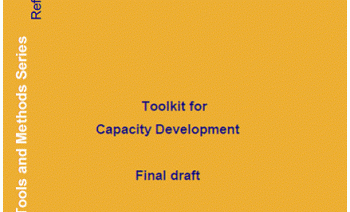When taking stock of the progress of the TC reform, some delegation staff complain that the reform imposes a heavy burden of new reporting obligations with little value added in terms of improving the quality of TC operations.
Indeed it would be ironic if a reform that encourages greater engagement with partners, and actively promotes partner ownership, kept those on the frontline busy serving headquarters instead.
Although many seem to believe that the reform is mostly common sense, they also argue that it fails to bring fresh ideas to the table. This in turn only strengthens the argument of pessimists, who dismiss the reform as not much more than another bureaucratic hassle in an organisation already struggling with an ample dose of paperwork.
For two reasons, however, it is too early and too easy to park the reform and continue with business as usual.

Less reporting, better reporting
Firstly, the concerned voices from the field have been heard in Brussels. Reports are needed - but not irrelevant or formal reports made for the sake of reporting. So Brussels must indeed do more to ensure that the paperwork is kept to the absolute minimum and that it is providing relevant information that will be used not to enforce compliance, but to learn about what works and what does not work in the reform.
Less complacency, more learning
Secondly, those who argue that the reform is mostly common sense, not so far from actual practice, risk being too complacent, overlooking that the long story of technical cooperation - in EuropeAid and in the aid industry as such - is largely a story of failure and ineffectiveness. So while ownership, demand and results-orientation may be common sense - it is still a huge challenge to convert them into common practice. Dealing with the trade-offs and complexities of ownership and results-orientation in practice require more than common sense and good intentions, given the competing incentives, the procedural constraints, the staff limitations and the complex context in which aid organisations work.
The TC reform will only help to make TC more effective if it promotes a learning culture. Difficulties and dilemmas need to be acknowledged. Lessons must be shared. And reports should focus on what counts rather than on counting.
The Capacity4dev platform has been created for precisely that purpose. So use it, and let's learn!





Log in with your EU Login account to post or comment on the platform.